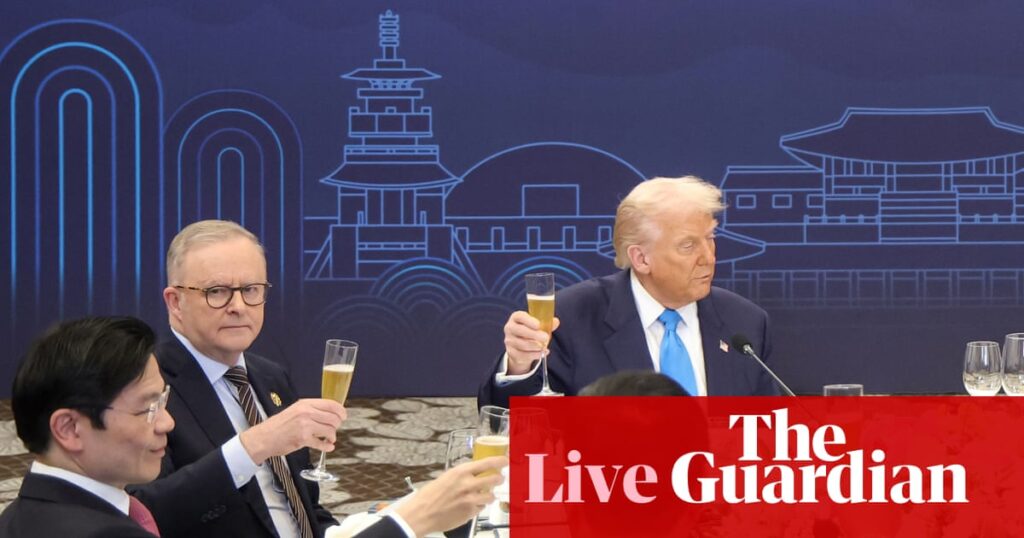
In a significant diplomatic engagement, Australian Prime Minister Anthony Albanese dined with former US President Donald Trump on the sidelines of the APEC summit in Gyeongju, South Korea. The meeting, which took place last night, was marked by Trump’s commendation of Albanese’s leadership, emphasizing their collaboration on rare earths and other initiatives.
Trump, reflecting on their recent meeting in Washington, stated, “You’ve done a fantastic job and we’re working together on rare earths, but we’re working on a lot of things together, and it’s all working out very well.” This interaction highlights the ongoing cooperation between the two nations, particularly in areas critical to global supply chains.
Albanese’s Diplomatic Marathon
The dinner with Trump is part of a broader diplomatic tour for Albanese, who has been actively engaging with world leaders. In recent weeks, he has visited the US, UK, UAE, Malaysia, and now South Korea, underscoring Australia’s strategic interests in global affairs. Albanese expressed his commitment to international collaboration, stating on social media, “I’m working with leaders from across the globe to get things done for Australia.”
At the APEC summit, Albanese reiterated Australia’s role in supporting jobs, businesses, and creating new opportunities for exporters and investors. “Because what happens in the world matters to Australia,” he added, thanking South Korean President Lee Jae Myung for the warm welcome.
Economic and Environmental Developments
Meanwhile, back in Australia, Energy Minister Chris Bowen announced a significant drop in wholesale electricity prices, predicting that consumers will soon see lower energy bills. The Australian Energy Market Operator (AEMO) reported a nearly 40% decrease in prices from July to September, attributed to increased renewable energy output.
The drop in wholesale price is good news – and should flow through to retail energy prices in the near term.
Renewables contributed 42.7% of the energy mix, a record for the September quarter, with wind power and solar energy playing pivotal roles. Notably, renewables accounted for 77.2% of total energy generation across the national market for half an hour on September 22, marking an all-time high.
Challenges and Opportunities in Renewable Energy
Despite these positive developments, New South Wales has faced setbacks with major renewable projects. The withdrawal of Equinor from the $10 billion Novocastrian wind farm project and the abandonment of the Barneys Reef wind farm highlight challenges in the sector. However, the NSW government’s new Investment Delivery Authority aims to attract significant investments, receiving 48 major proposals worth $136 billion.
NSW Premier Chris Minns emphasized the importance of the Investment Delivery Authority, stating, “Forty-eight proposals worth $136bn shows exactly why we created the Investment Delivery Authority. This level of interest is really promising.”
Future Economic Reforms
In the realm of economic policy, Treasurer Jim Chalmers has indicated that any further economic reforms will be postponed until the May budget. Speaking at the Australian Chamber of Commerce and Industry’s gala dinner, Chalmers ruled out new policies in December’s mid-year fiscal update, focusing instead on updating forecasts and the fiscal position.
This year’s MYEFO will not be a mini-budget with lots of new initiatives.
Chalmers highlighted ongoing efforts to drive economic progress, including state and territory reforms incentivized by the government’s $900 million productivity fund. These initiatives aim to streamline commercial development objections and explore new building materials for housing.
As Australia navigates these complex economic and diplomatic landscapes, the government continues to balance international cooperation with domestic policy challenges. The outcomes of these efforts will be closely watched in the coming months as global and local dynamics evolve.







